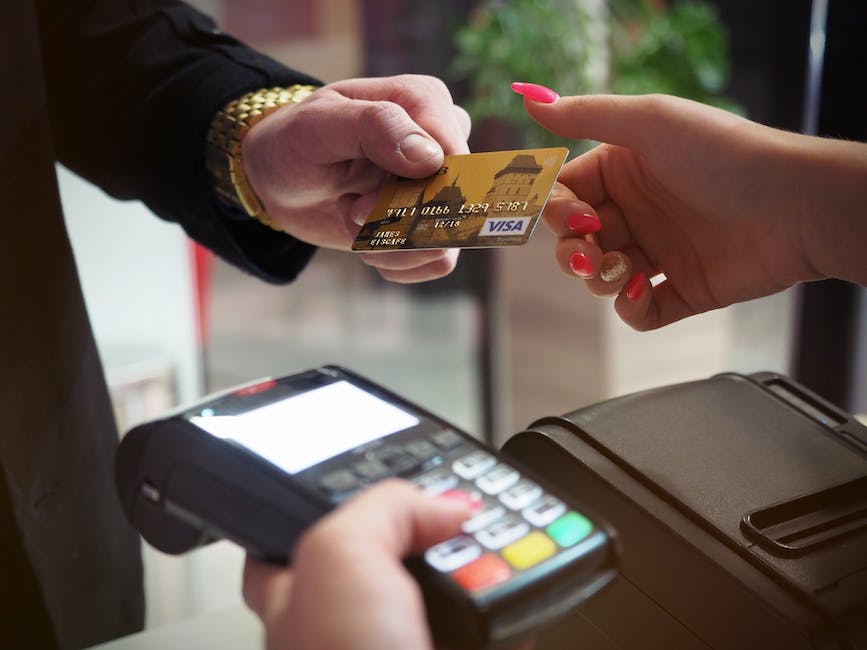Powered by the wheels of technology and convenience, contemporary businesses, especially small ones, are progressively moving towards digital transactions. For running operations smoothly and ensuring customer satisfaction, the adoption of an efficient Payment Gateway is crucial. Serving as a conduit between a business, its customers, and their respective banks, payment gateways have transformed how we transact, making the process swift, seamless, and secure. This detailed exploration focuses on explaining the integral role of payment gateways for small businesses, evaluating top contenders in the industry, helping businesses understand the selection criteria and shedding light on the future technological trends. It strives to equip readers with comprehensive knowledge, facilitating informed decision-making while choosing the right payment gateway.
Understanding Payment Gateways
The lifeblood of any business, especially small and medium-sized enterprises (SMEs), lies in its revenue streams. For a revenue stream to be reliable and efficient, a robust payment gateway is not just handy, it’s essential. This business tool becomes particularly crucial for SMEs operating in e-commerce, where virtual transactions are the norm. So, here’s a deep dive into the subject to shed better light on its practical necessity.
The prevalence of digital transactions has undergone a meteoric rise in the past decade. A case in point is the upward trend seen in payment gateway market size. Projected to hit the $90 billion mark globally by 2025, this figure is a testament to the indispensability of a seamless electronic payment system for businesses.
Why is a robust payment gateway pivotal for small businesses?
To answer this, let’s strip down the functionality of a payment gateway. It acts as a conduit for validating the buyer’s card details securely, ensures funds are available and ultimately, enables the merchant to get paid. This process is accomplished seamlessly and swiftly, bolstering the user experience (UX) in the process. Moreover, a top-notch payment gateway facilitates both domestic and international transactions, cast a wider net in the customer pool, aiding in business expansion.
In today’s fast-paced digital marketplace, a business’s growth trajectory is littered with security risks, but a robust payment gateway can help navigate these anxieties. Modern gateways are a fortress of security, integrating mechanisms such as SSL transmission, data encryption, tokenization, and automated fraud monitoring. For small businesses, the enhanced security is not just a tool for maintaining customer trust, it is also a competitive advantage in an increasingly skeptical market.
Let’s delve into the joys of a top-tier user experience (UX). An intuitive, smooth, and quick check-out process is one of the core features of a business with superior customer satisfaction. A robust payment gateway ensures just that, supporting a variety of payment options, including credit/debit cards, e-wallets, or even cryptocurrencies. As a result, it caters to a wide array of customer preferences, thereby elevating the overall UX.
Investing in a cutting-edge payment gateway gears businesses for future expansion. Swift integration with various platforms, scalability to handle increased transactions, and support for newer payment technologies signify the readiness of a business to take on greater challenges in the digital market. While such features might seem like bonuses, they, in fact, form the bedrock for any successful online business.
The core message is nothing short of evident. A robust payment gateway is not a luxury—it’s a necessity for small businesses. It is an indispensable element in the digital commerce framework, ensuring seamless transactions, top-level security, superior customer experience, and scalability. Hence, for small businesses poised to ride the digital wave and leave an indelible impact, the robustness of the payment gateway should be at the top of their checklist. In a market saturated with payment gateways, businesses need to carefully pick the one that suits their needs and resonates with their long-term vision.
A robust payment gateway is a deciding factor between a business’s potential and its success – a cornerstone of the online commercial world, anchoring the flourishing landscape of digital entrepreneurship.

Analyzing Top Payment Gateways
In the landscape of continually advancing technology, and more specifically, in the sphere of E-commerce, choosing the right payment gateway is a critical component that can determine the trajectory of a small business’ development and growth. A study suggests that by 2023, the global payment gateways market is projected to reach $28.769 billion, a testament to their growing importance to businesses of all sizes. This article aims to spotlight the leading payment gateways for small businesses, beyond just financial transactions, focusing on their innovation, reliability, and ability to support multifaceted business goals.
1. PayPal:
Known for its profound global presence and consistent reliability, PayPal remains an optimal choice for small businesses. With an expansive reach in over 200 countries and the ability to handle over 20 different currencies, PayPal offers extensive market access for any company. What sets it apart are innovative features such as One-Touch checkout and in-email payment options, which encompass the quintessential user-friendly experience.
2. Stripe:
With its advanced API, Stripe takes customization to a whole new level, making it ideal for businesses that are planning to scale. It not only accepts all major cards but also embraces unusual payment methods such as Alipay, ACH, and Bitcoin. Additionally, Stripe’s built-in compliance protocols for international commerce and anti-fraud measures provide small businesses with a stress-free, secure transaction environment.
3. Square:
Trusted by millions of small businesses, Square excels in its simplicity and accessibility, with physical card readers for in-store sales and an effortless online setup. Unique features such as employee management, email marketing, and inventory tracking make Square an all-in-one business toolkit. Its payment systems integrate well with a wide array of other services and its pricing model, based on a flat rate per transaction, is transparent and straightforward.
4. Braintree:
A subsidiary of PayPal, Braintree offers cutting-edge technology that catifies to businesses striving for flexibility and control over the payment experience. It supports over 130 currencies and extends its service to more than 40 countries. With exceptional features like recurring billing and credit card storage, it becomes an asset for subscription-based businesses.
5. Authorize.Net:
A long-time player with robust security protocols, Authorize.Net excels in providing businesses with extensive offline and online transaction capabilities. Its capacity to connect with customers’ merchant accounts directly provides seamless transactions, and its top-tier fraud detection suite ensures maximum security.
6. 2Checkout:
Celebrated for its international payment support, 2Checkout caters to businesses with an international customer base. Its platform, capable of handling payments in 15 languages and 87 currencies, is perfectly optimized for a global marketplace. Furthermore, 2Checkout stands out with bundled services like tax management and financial reporting.
Evaluating and implementing the right payment gateway can significantly shape a small business’s digital success. It’s not just about providing a digital channel for transactions, but about ensuring the process is smooth, secure, and in line with the nuanced needs of the business and its customers. While this list represents the leaders in the industry, remember that the perfect solution is the one that fits organically into your unique business structure and future growth plans.

Photo by christiannkoepke on Unsplash
Payment Gateway Selection Criteria
Throughout the whirlwind of innovation that embodies the digital era, small businesses have learned to keep pace. This means prioritizing vital resources, especially when choosing a payment gateway. Let’s dissect some crucial considerations beyond what we’ve already highlighted – aspects critical to choosing the right payment gateway for small businesses.
Fee Structures
A prime concern for any savvy entrepreneur should be the fee structure of a potential payment gateway. Profits on razor-thin margins can be severely impacted by high fees. This necessitates a careful analysis of costs associated with transactions, maintenance, setup, and even cancelation. It’s about understanding what’s offered and at what price.
Market-reputed gateways, for instance, PayPal and Stripe, offer transparent pricing structures, charging a flat rate per transaction, with no setup or monthly fees. Alternatively, Authorize.Net levies a monthly gateway fee in addition to per transaction charges, making it a better choice for businesses with high sales volume.
Currency & Locality
Offering an expansive palette of currency choices and multilingual support significantly enhances localization efforts, potentially roping in new demographics. Integrating gateways that extend support to multiple currencies, like Square and 2Checkout, may prove instrumental in global market penetration and revenue increment.
Customer Support
Customer support can be a game-changer, particularly in the face of technical difficulties. Therefore, choosing a payment gateway that provides swift, efficient support 24/7 – like Braintree – can be a pivotal decision.
Mobile Optimization
Mobile transactions have seen a meteoric rise, consequencing in the necessity for payment gateways to be optimized for mobile platforms. Businesses that fail in offering seamless mobile transactions may risk losing a substantial share of customers who prefer shopping on their smartphones.
Integration Capabilities
A payment gateway that offers easy integration with the existing website or E-commerce platform can save considerable time and resources. Assistance with integration or plug-and-play options should factor in while choosing a gateway.
Remember, the right payment gateway is one that aligns perfectly with the specific needs of a small business, keeping it agile on the digital commerce battlefield. Always review, compare, and explore before taking the right leap.

Future trends in Payment Gateways
As technologies continue to evolve, small businesses must stay abreast of recent trends to stay ahead of the competition, especially in the realm of payment gateway capabilities. By examining the upcoming advancements, businesses can position themselves at the forefront of their industries and provide an optimal customer experience.
One of the significant emerging trends in payment gateway technologies is the integration of Artificial Intelligence (AI) and Machine Learning (ML). By leveraging AI and ML, payment gateways can deliver personalized experiences to customers, predict future transaction patterns, and augment fraud detection measures. Furthermore, these technologies enable automatic updating and streamlining of algorithms, eliminating the need for manual intervention.
Similarly, the surge in Blockchain technology heralds a new era of security and transparency for payment gateways. Blockchain ensures immutable, decentralized transactions that curb the risk of fraud and misuse, thus instilling customer confidence in online payments. It also expedites cross-border transactions, an essential attribute for small businesses with a global customer base.
Further into future trends, seamless, cross-platform, and multi-currency support will be chart-topping characteristics of payment gateways. These features empower small businesses to attract a broader audience, transcending geographical constraints, and offer a user-friendly payment experience. Gateways will support payments in various digital currencies, including cryptocurrencies, widening the landscape for customer choices.
An interesting development in the horizon is voice-enabled payments. In the world overrun by digital assistants like Siri, Alexa, and Google Assistant, voice-activated transactions will soon become the norm. This trend carries the potential of reshaping customer behavior while enriching the user experience through hands-free operations.
In the realm of customer support, the advent of chatbots signifies a significant revolution. Chatbots offer round-the-clock service, quick response times, and automated solutions to common payment issues, maximizing the efficiency of client interactions and fostering favorable business relationships.
Lastly, the ever-growing popularity of mobile transactions points towards the necessity for mobile-optimized payment gateways. Businesses that prioritize mobile optimization will deliver a seamless experience across devices, boosting customer satisfaction and, implicitly, sales.
In conclusion, awareness of these emerging trends in payment gateway technologies is essential for small businesses to remain competitive, relevant, and able to provide exemplary customer experiences. Integrating these innovations will lead not only to immediate advantages but also foster long-term growth and sustainability.

As the landscapes of business and technology continue to intersect and evolve, the role of payment gateways becomes ever more prominent. Understanding their workings, wisely choosing among the top market players, and staying aware of future technological advancements not only leverages the operational efficiencies but also scales the growth potential of small businesses.
Conclusion
The continual strive towards creating a more secure, transparent, and user-friendly transaction environment propels the need for adaptive and progressive payment solutions. Therefore, the decision of selecting the right payment gateway must not be taken lightly. After all, the seamless union of technology and business is what will steer the journey of small businesses into a future replete with numerous possibilities.

